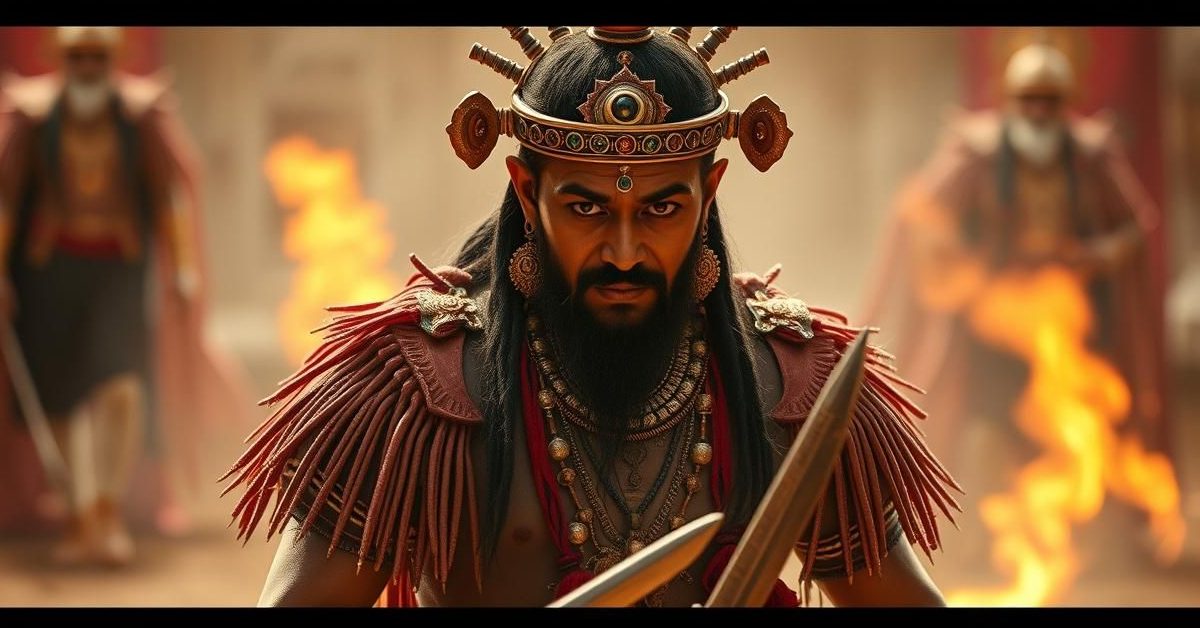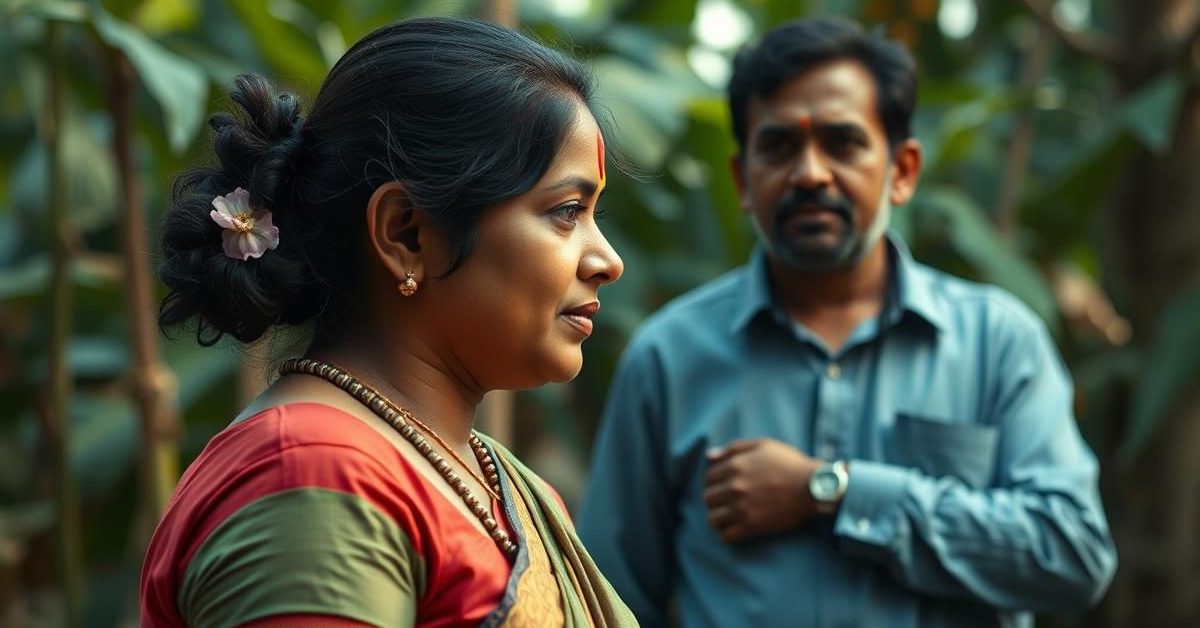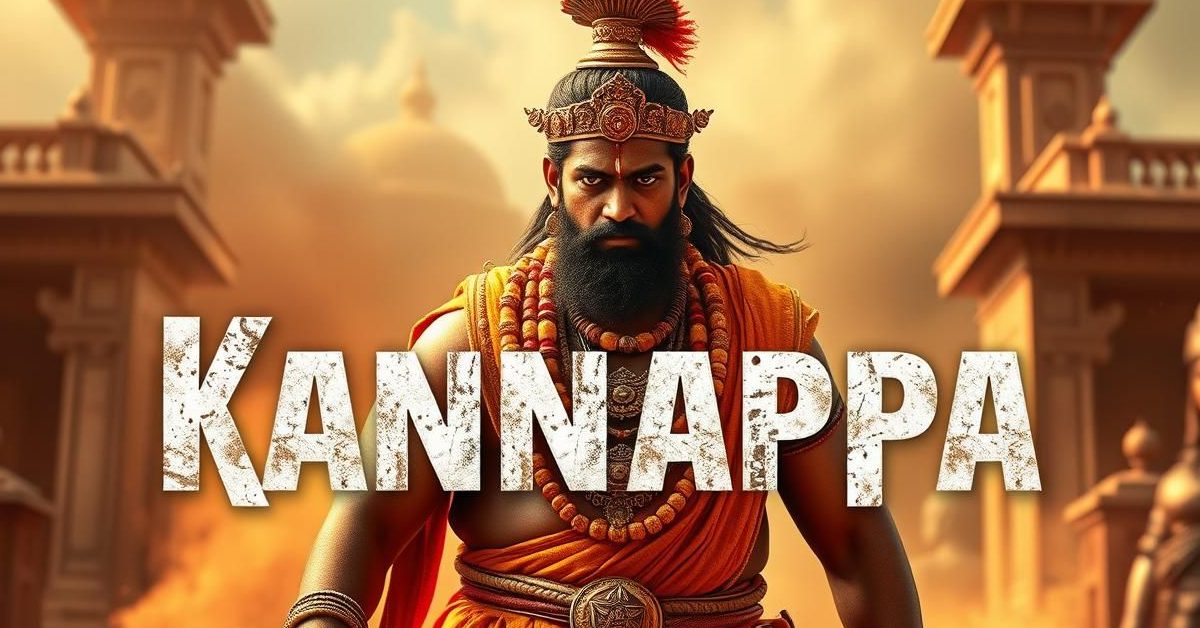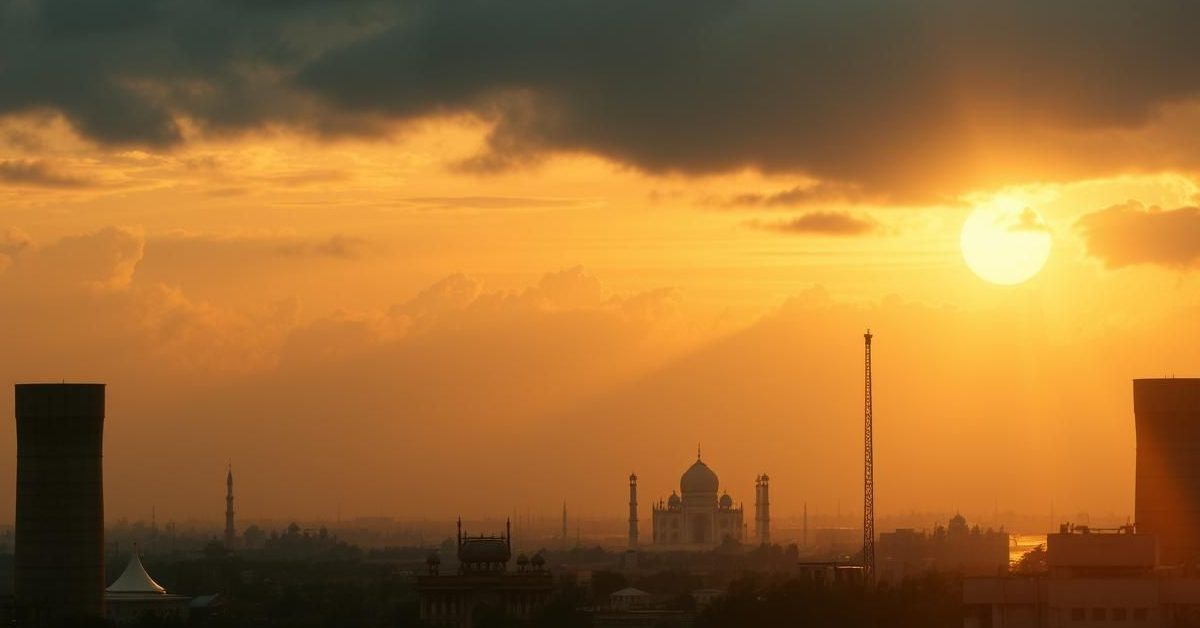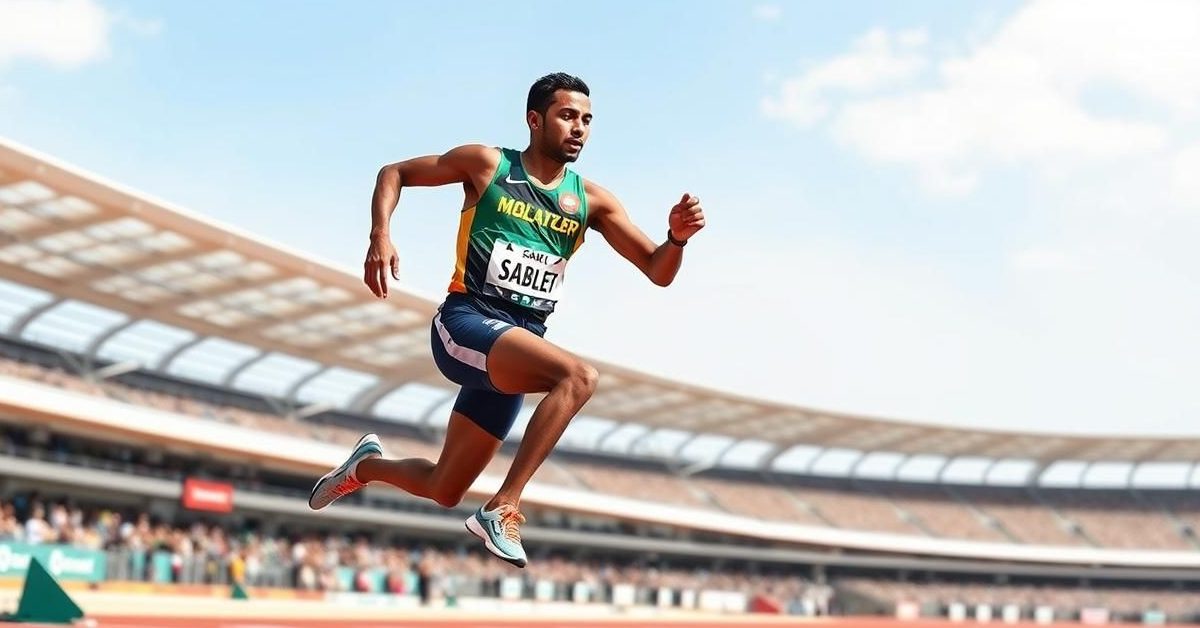A Grand Spectacle or a Confusing Pageant? The Initial Impressions of Kannappa
Stepping into the world of **Kannappa** just moments after its opening can be a disorienting experience. Imagine walking into what appears to be an elaborate, if somewhat bizarre, cultural performance staged by expatriates, rather than a big-budget cinematic epic. The visual elements immediately assault the senses: garish, over-the-top costumes, peculiar body art and piercings, and shamanic rituals unfolding with booming theatricality. Adding to this spectacle is the intriguing, yet oddly presented, configuration of five ancient clans sharing a sprawling landscape. It all feels less like a journey into deep mythology and more like an amateurish, albeit ambitious, historical reenactment. Yet, director Mukesh Kumar Singh earnestly asks us to embrace this theatricality, even as the narrative struggles to find its footing.
The Myth of Kannappa: A Familiar Tale, A Disconnected Vision
At its core, **Kannappa** aims to retell the profound Hindu mythological saga of the eponymous devotee, revered for his ultimate, unwavering faith in **Lord Shiva**. But before this iconic transformation, he was **Thinnadu**, a staunch atheist hunter, fiercely dismissive of his tribe’s religious customs. Played with palpable dedication by **Vishnu Manchu**, Thinnadu’s warrior spirit initially rebels against any form of idol worship. It’s only a powerful divine intervention that compels him to seek out and discover God within the self-manifested **vayulingam** nestled deep within the surrounding forests.
The tale of **Kannappa** is far from new to the silver screen. Legendary films like **HLN Simha’s** 1954 masterpiece, *Bedara Kannappa*, showcased **Dr. Rajkumar’s** earnest and deeply committed portrayal. Two decades later, **Bapu’s** Telugu rendition, starring **Krishnam Raju**, achieved resounding success through its grounded yet cinematic vision. Each interpretation has brought a distinct thematic focus and storytelling priority. Mukesh Singh’s **Kannappa (2025)** clearly aspires to elevate this narrative even further. The central challenge, however, lies in its apparent disconnect from the authentic milieu of its origin story, often mistaking sheer visual spectacle for genuine creative ambition.
Exoticism Over Authenticity: A Misstep in World-Building
One of the most glaring missteps in **Kannappa** is its portrayal of the tribal community. **Thinnadu** is depicted as belonging to the **Chenchu tribe**, a community known for its rich, distinctive cultural characteristics, now grappling with the pressures of modernization. Yet, the film opts for a cruel exoticization, rendering them almost campy caricatures. Characters, particularly the women, are draped in heavily sensualized costumes, justified under the guise of “tribal” authenticity. The antagonist is introduced atop a macabre mound of corpses, his eerie occult world reeking of manufactured savagery. Even the sprawling physical landscape – the majestic mountains, lush meadows, and winding rivers – overtly screams “foreign location.” The extensive shooting in **New Zealand** is evident, with the filmmakers seemingly going to great lengths to showcase their reach and substantial budget, rather than rooting the story in a believable, organic setting.
This aesthetic dissonance prevents the audience from truly connecting with the essence of the story until much later in the runtime. Consequently, **Vishnu Manchu**, despite his intense commitment to what he clearly considers a dream role, is left to restlessly navigate a world that struggles to establish any coherent rhythm or emotional anchor.
Moments of Brilliance Amidst the Turgidity: Salvaging the Narrative
While the film’s initial half is largely weighed down by the aforementioned generic pitfalls, there emerges a crucial juncture where the narrative notably begins to coalesce. At its core, **Kannappa** is a profound exploration of faith’s trials and the transformative journey of a non-believer shedding arrogance to embrace personal revelation. When the screenplay, also co-credited to **Vishnu Manchu**, briefly finds its stride, it unearths a few genuinely pleasant surprises, managing to salvage what would otherwise be a tedious retelling of a cherished mythological epic.
A significant strength lies in the strategically placed and well-timed cameos and special appearances. The inclusion of superstars like **Mohanlal**, **Prabhas**, and **Akshay Kumar** is no longer a spoiler, and their sequences are contextually anchored, proving memorable in their own right. One particularly impactful segment even dares to raise poignant questions regarding caste and the universal right to direct divinity, as **Thinnadu’s** innocent, unburdened views challenge the rigid “purity-pollution” dogma espoused by a Brahmin priest. These are the fleeting moments when **Kannappa** truly connects.
Performances and Overall Impact: An Uneven Tapestry
**Vishnu Manchu** undeniably pours his heart into the role, but his performance ultimately falls short during the emotionally demanding climactic scenes. **Preity Mukhundhan** as **Nemali** is given some material to work with, yet her character often feels exploited due to its objectified framing. Veteran actors such as **R. Sarathkumar**, **Mukesh Rishi**, and **Madhoo**, along with others like **Mohan Babu**, **Brahmanandam**, and **Brahmaji**, are present in abundance but are rarely challenged, delivering exactly what is asked of them without much room for depth.
Ultimately, **Kannappa** struggles with incoherence for much of its duration. The disjointed storytelling leaves a lasting mark. The uninspired world-building, compounded by instances of overly theatrical acting, becomes its primary shortcoming. Furthermore, a pervasive lack of narrative urgency damages the overall experience. It feels as though the filmmakers hesitated to fully commit to an immersive mythological experience for a contemporary audience, and this second-guessing becomes painfully evident as the story’s most significant, emotionally resonant stretch arrives agonizingly late into the daunting 182-minute runtime. While the film shines fleetingly, especially when it taps into its emotional core, leading to a fitting crescendo in the finale, these highs are scattered. The misfires, regrettably, far outnumber the successes.
